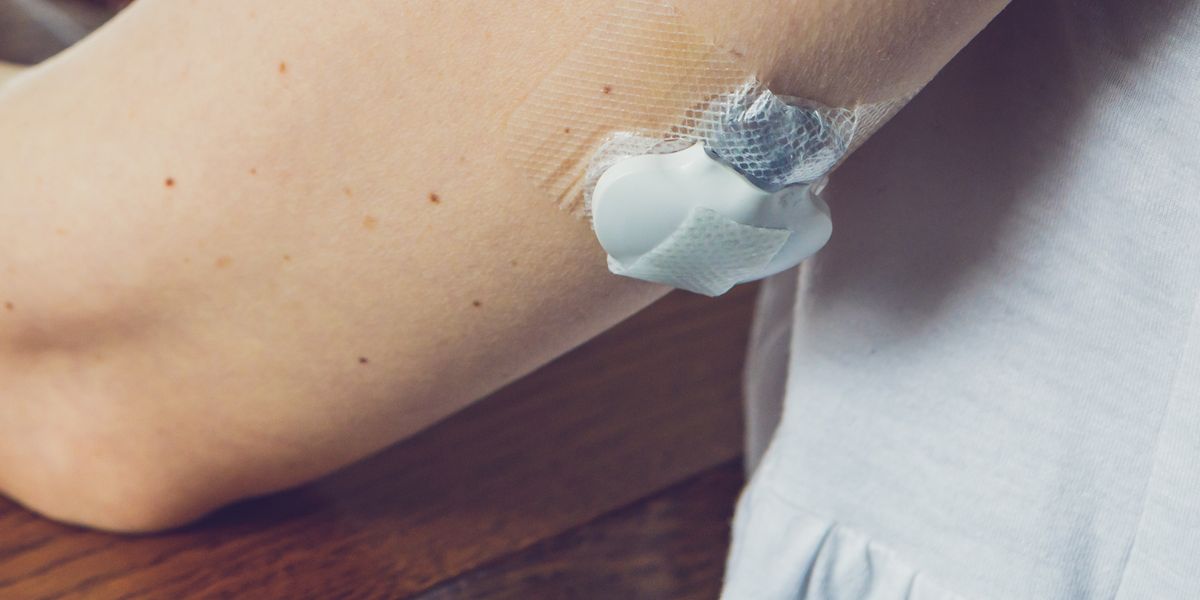Taking too much insulin can lead to hypoglycemia This can become particularly serious if your insulin dose was significantly more than it should have been.
If you are worried that you have overdosed on insulin, take ample fast-acting carbohydrate immediately and seek advice from your health team, or the out-of-hours service at your local hospital, if applicable.
Symptoms of an insulin overdose
The list of symptoms below are symptoms of hypoglycemia which can result from an insulin overdose:
- Depressed mood
- Dizziness
- Drowsiness
- Fatigue
- Headache
- Hunger
- Inability to concentrate
- Irritability
- Disorientation
- Nausea
- Nervousness
- Personality changes
- Rapid heartbeat
- Restlessness
- Sleep disturbances
- Slurred speech
- Pale skin
- Sweating
- Tingling
- Tremor
- Unsteady movements
If you have administered a larger dose of insulin, more severe symptoms can include:
- Coma
- Disorientation
- Seizures
Seek medical attention urgently in the case of an insulin overdose.
What can cause an insulin overdose?
Insulin overdoses can occur for a number of reasons. Some common reasons are listed below:
- Miscalculating the carb content of a meal
- Missing out or delaying a scheduled meal or snack after having injected
- Accidentally injecting twice for the same meal or snack
- Accidentally injecting the dosage number of a different meal (eg mistakenly injecting your dinner dose at breakfast )
- Accidentally injecting the wrong insulin – for example injecting your rapid acting insulin instead of your long acting (basal) insulin
- Having difficulty seeing the numbers or gradation on an insulin pen or syringe
Treating an overdose of rapid-acting insulin
How you treat an overdose will depend on how quickly you realise the error.
If the insulin was administered more than 20 minutes ago, act quickly and take a good source of fast-acting carbohydrate immediately, such as glucose tablets or a very sugary drink. Follow this up with sufficient slower-absorbed carbohydrate, such as bread, to prevent hypoglycemia occurring later.
If you realise an error has been made within 20 minutes of injecting, you may not need to take sugar but you should have carbohydrate that will get absorbed relatively quickly. Avoid having fatty foods, if possible, as fat tends to slow down how quickly the carbohydrate acts.
It is common to need 10g of carbohydrate to counteract each unit of insulin. It’s generally safer to have too much than too little carbohydrate when treating an overdose of insulin.
Test your blood glucose levels regularly and be on the lookout for symptoms of a hypo. If you feel hypo symptoms, or think you feel them, perform a blood test.
If the overdose is a large overdose, take carbohydrate first and then call your health team or out- of-hours service for advice.
Treating an overdose of long-acting insulin
If you have given too high a dose of long-acting insulin, this could affect you for up to 24 hours.
How you prevent a hypo will depend on how big the overdose was. If the overdose was large, such as a double dose, take carbohydrate to raise your sugar levels and call your health team or out-of-hours service for advice.
If the overdose was smaller, such as up to 5 units too much, take more carbohydrate than usual and aim to keep your sugar levels higher than normal over the next 24 hours to prevent a hypo occurring.
Test regularly through the day and at any time you think you may feel hypo
Take plenty of carbohydrate before sleeping. It is better to wake up with higher sugar levels than risking a hypo overnight. Don’t risk going low. If you cannot be certain that hypos will be avoided, call your health team or out-of-hours service.
I injected rapid-acting insulin instead of basal insulin before bed, what should I do?
If you have injected the wrong insulin, don’t go to bed unless you can be certain you took sufficient carbohydrate to keep your sugar levels up.
If you cannot be completely certain, stay awake and regularly test your blood sugar levels until the duration of the rapid-acting insulin has ended.
You should make sure you take your basal insulin as well. If a basal dose is missed this may result in ketoacidosis occurring several hours later.
Notify someone in your house or call someone to let them know you have overdosed so they can check you’re ok later on. Don’t leave anything to chance and make sure you have eaten enough carbohydrate to prevent hypoglycemia.
Very low blood glucose levels can cause us to feel very lethargic and sleepy. Test your blood glucose levels and don’t go to sleep if there’s a chance you may go low. If this is difficult call your hospital’s out-of-hours service for advice.
How to prevent insulin overdoses
- Take care when calculating meal time insulin. Taking an extra couple of minutes to be sure of your dose will save the time and hassle of an overdose.
- Never be tempted to delay your meal or snack if you have injected.
- Don’t inject whilst doing other tasks, such as watching the TV, holding a conversation or performing another task as this raises the chance that you may forget your injection has been done. Concentrate solely on giving the injection
- Be careful of injecting insulin when you are hypo as mistakes are more likely to be made. Ideally, ensure your blood glucose has risen to safe levels and then put in your scheduled insulin dose.
- Ask for help if you have difficulty seeing the numbers or gradations on your insulin pen or syringe. See also our page on diabetes and visual impairment which lists a number of injection aids for people that have visual impairments




